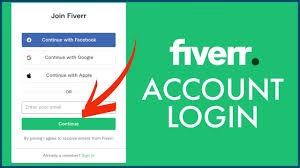Google Rank Ever wondered how some websites magically appear on the first page of Google while others are buried in digital oblivion? That’s the power of Google Rank—a game-changer for online visibility and success. Whether you’re a business owner, blogger, or marketer, understanding how Google ranks content is crucial. This guide dives deep into what Google Rank is, how it works, and how you can master it.
What is Google Rank?
Definition and Importance
Google Rank refers to the position of a web page in Google’s search engine results pages (SERPs) for a specific keyword or query. The higher the rank, the more likely users are to click on your link. Why is that important? Because the first result on Google gets about 27.6% of all clicks, while the tenth barely scrapes 2.4%. That’s a massive difference in visibility, traffic, and potential revenue.
Brief History of Google’s Algorithm
Google didn’t always use the complex AI-driven algorithm it does today. Back in 1998, Google’s original algorithm—PageRank—focused mainly on backlinks. Over time, with updates like Panda, Penguin, Hummingbird, BERT, and most recently, the Helpful Content Update, the algorithm now considers over 200 ranking factors.
How Google Rank Works
The Role of Google’s Search Algorithm
Google’s algorithm uses bots (called crawlers or spiders) to index and evaluate websites. Then, it sorts the results based on how well they match a user’s search query. But it’s not just about keywords anymore—it’s about relevance, quality, and user experience.
Ranking Signals Google Uses
Relevance
Google tries to match your content to the user’s intent. This means your content must directly address what the user is searching for.
Authority
Measured mostly through backlinks, authority indicates how trustworthy and credible your site is within its niche.
User Experience
If your site loads slowly, isn’t mobile-friendly, or has annoying pop-ups, Google might push it down the rankings.
Freshness
Timely and up-to-date content tends to rank higher, especially in niches like news, health, or technology.
Key Google Ranking Factors in 2025
Content Quality
Your content must provide real value. That means it should be original, well-structured, and rich in information. Google’s Natural Language Processing (NLP) now understands context and nuance, so write for humans, not bots.
Backlinks and Link Authority
Backlinks remain a top-ranking factor. A link from a reputable site like Forbes or Wikipedia can boost your rank significantly. But beware—spammy or low-quality backlinks can harm your rankings.
Mobile-First Indexing
Google primarily uses the mobile version of content for indexing and ranking. If your site isn’t mobile-optimized, you’re likely falling behind.
Core Web Vitals and Page Experience
Google’s Core Web Vitals include:
- Largest Contentful Paint (LCP)
- First Input Delay (FID)
- Cumulative Layout Shift (CLS)
These metrics evaluate load speed, interactivity, and visual stability—key elements of user experience.
E-E-A-T (Experience, Expertise, Authoritativeness, Trustworthiness)
Google loves experts. The more you showcase your credentials, experience, and authority, the better your chances of ranking. Especially important for YMYL (Your Money, Your Life) content—like finance or health topics.
How to Improve Your Google Rank
On-Page SEO Best Practices
Keyword Optimization
Find relevant keywords with decent search volume and naturally weave them into your content. Use them in:
- Titles
- Meta descriptions
- Headers
- Image alt texts
- URL slugs
Meta Tags and Headers
Title tags and meta descriptions are your first impression on Google. Make them click-worthy. Use H1, H2, H3 tags properly for structure.
Internal Linking
Linking to your own content helps Google understand the structure of your site and spreads page authority around.
Technical SEO Tips
Site Speed
Use tools like Google PageSpeed Insights to find and fix slow-loading issues. Compress images, use browser caching, and opt for a reliable host.
Mobile Optimization
Make sure your website is responsive and looks good on all devices. Use a mobile-friendly theme and test with Google’s Mobile-Friendly Test tool.
Structured Data (Schema Markup)
Adding schema markup helps Google better understand your content, improving your chances of getting rich results like featured snippets or star ratings.
Off-Page SEO Techniques
Link Building
Focus on earning high-quality backlinks through guest posts, partnerships, and digital PR.
Guest Posting
Writing articles for other reputable sites can give you exposure, traffic, and powerful backlinks.
Brand Mentions and Social Signals
Even unlinked brand mentions and social media engagement are signals Google might consider in ranking your site.
Common Mistakes That Hurt Your Google Rank
Duplicate Content
Google wants original content. Copy-pasting from other sites can lead to ranking penalties.
Keyword Stuffing
Overusing keywords makes your content sound robotic and spammy. Balance is key.
Ignoring Mobile Users
With mobile-first indexing, a poor mobile experience is like shooting yourself in the foot.
Poor Backlink Profiles
Buying cheap backlinks or using black-hat tactics can get you penalized. Always go for quality over quantity.
Google Penalties and How to Avoid Them
Manual Actions
These are penalties applied by human reviewers. Common causes include:
- Spammy backlinks
- Thin content
- Cloaking
Algorithmic Penalties
These occur automatically when your site violates ranking guidelines—like during a major update (e.g., Penguin or Panda).
Recovery Strategies
- Audit your backlinks using tools like Ahrefs or SEMrush
- Disavow toxic links
- Improve thin or duplicated content
- Follow Google’s Webmaster Guidelines
Tracking and Measuring Google Rank
Tools You Can Use
- Google Search Console
- Ahrefs
- SEMrush
- Moz
- SERPWatcher
These tools help you track keyword rankings, backlink profiles, traffic sources, and technical issues.
Understanding SERP Volatility
Google updates its algorithm frequently. That means your rank can change day-to-day. Use tools like MozCast or Algoroo to monitor these fluctuations.
Interpreting Ranking Data
It’s not just about rank 1 anymore. Monitor click-through rate (CTR), bounce rate, and dwell time to get a complete performance picture.
The Future of Google Rank
AI and Machine Learning in Rankings
With RankBrain and MUM, Google is moving towards deeper understanding of search intent and context. AI helps match search queries with the most relevant results—even if the keywords don’t match exactly.
Voice Search and Semantic SEO
More people are using voice assistants to search. Optimize for natural language queries, question-based keywords, and featured snippets.
User Intent Over Keywords
Google’s focus is shifting to user intent—what the person really wants, not just what they type. That means content must solve problems and deliver real value.
Final Thoughts on Google Rank
Climbing to the top of Google is no small feat, but it’s absolutely possible with the right strategy. Focus on creating helpful, high-quality content, ensure your website runs smoothly, and build genuine authority through backlinks and expertise. Google Rank isn’t a mystery—it’s a measurable, achievable goal when you understand how the algorithm works and stay updated with best practices.
FAQs
1. How long does it take to rank on Google?
It depends on your niche, competition, and SEO strategy. For new websites, it might take 3-6 months, while established sites can see changes in a few weeks.
2. What’s the fastest way to improve my Google rank?
Optimize for low-competition keywords, improve page speed, and get quality backlinks. Updating old content also gives quick wins.
3. Does paid advertising help with Google ranking?
No, Google Ads do not influence organic rankings. But ads can drive traffic and brand awareness, which may indirectly help SEO.
4. Is Google Rank the same for all users?
Not exactly. Google personalizes results based on location, search history, and device. So rankings can vary slightly for different users.
5. Can you rank without backlinks?
Yes, but it’s tough. Backlinks are a major ranking factor. However, if you target ultra-specific, low-competition keywords, it’s possible to rank without them.







Can you be more specific about the content of your article? After reading it, I still have some doubts. Hope you can help me.